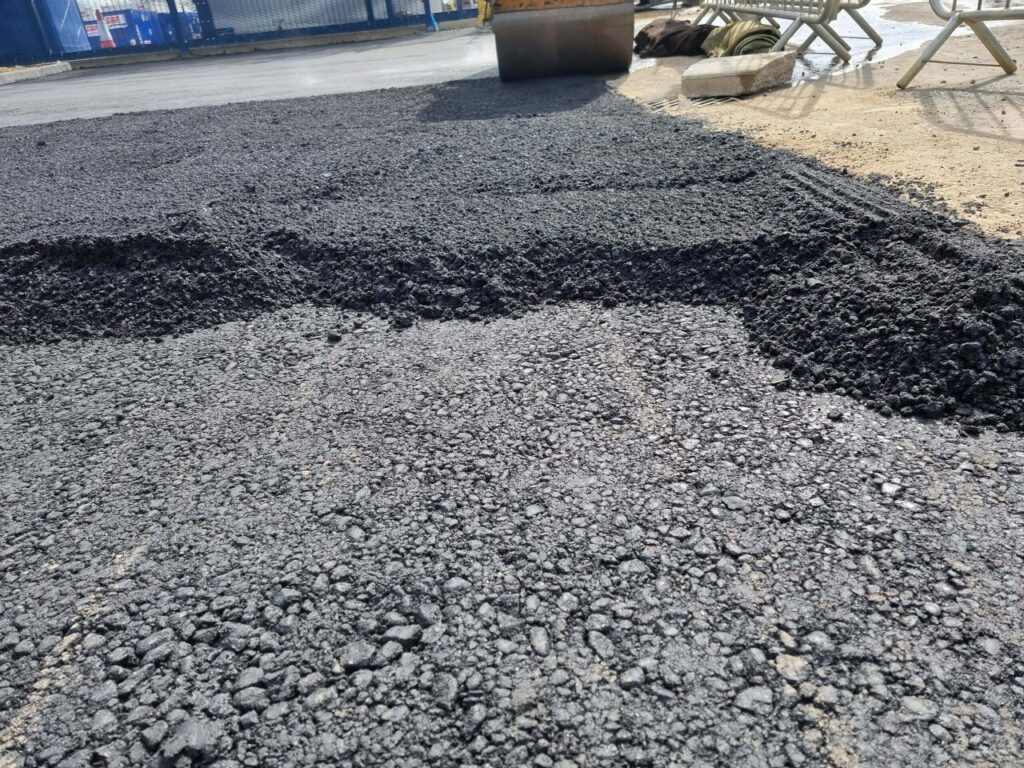Tarmac Surfacing Solutions for Industrial Applications
Introduction: In industrial settings, where durability, reliability, and cost-effectiveness are paramount, choosing the right surfacing material for driveways, pathways, and loading areas is crucial. Tarmac, known as asphalt, is a versatile and robust option perfectly suited for various industrial applications. Here’s why tarmac surfacing is ideal for industrial environments and how it can benefit your operations in Paddock Wood:
1. Durability and Strength
Tarmac is renowned for its exceptional durability and strength, making it well-suited for heavy-duty industrial use. It can withstand the weight of large vehicles, machinery, and constant traffic without compromising its structural integrity. This durability ensures minimal maintenance and long-term cost savings compared to other surfacing materials.
2. Quick Installation
Industrial operations often require minimal disruption and downtime. Compared to concrete and other materials, tarmac offers a relatively quick installation process. Once laid and compacted, tarmac surfaces can be ready for use quickly, allowing businesses to resume operations promptly.
3. Cost-Effectiveness
Tarmac provides excellent value for money due to its lower initial installation costs and reduced long-term maintenance requirements. Its smooth surface reduces wear and tear on vehicles and equipment, reducing maintenance and repair costs over its lifespan. Additionally, tarmac’s ability to be recycled and reused makes it an environmentally sustainable choice for industrial applications.
4. Versatility
From large-scale warehouses and distribution centres to manufacturing plants and logistics hubs, tarmac can be tailored to suit various industrial environments. It can be laid in different thicknesses and grades to accommodate specific load-bearing requirements and traffic volumes, ensuring optimal performance and safety.
5. Safety and Accessibility
Safety is paramount in industrial settings. Tarmac surfaces provide excellent skid resistance and traction, reducing the risk of accidents caused by slippery conditions. They can also be designed with clear markings and signage to enhance visibility and guide traffic flow, improving overall site safety and efficiency.
6. Low Maintenance
Maintaining tarmac surfaces in industrial settings is relatively straightforward. Regular inspections and minor repairs, such as crack sealing and pothole patching, help prolong its lifespan and ensure continued performance. Sealcoating every few years protects the surface from weathering, UV damage, and chemical spills.
7. Environmental Benefits
Tarmac is inherently sustainable, consisting of recycled materials such as aggregates, bitumen, and filler. Its recyclability at the end of its life cycle reduces landfill waste and conserves natural resources. Choosing tarmac for industrial surfacing aligns with sustainable practices and corporate environmental responsibilities.
Conclusion: Choosing tarmac surfacing solutions for industrial applications in Paddock Wood offers numerous advantages, including durability, cost-effectiveness, safety, and environmental sustainability. Whether planning to upgrade existing surfaces or undertake new construction projects, tarmac is a reliable choice that enhances operational efficiency and longevity.
Call us on: 01892 362 995
Click here to find out more about Paddock Wood Driveways
Click here to complete our contact form and see how we can help you with your driveway needs.

